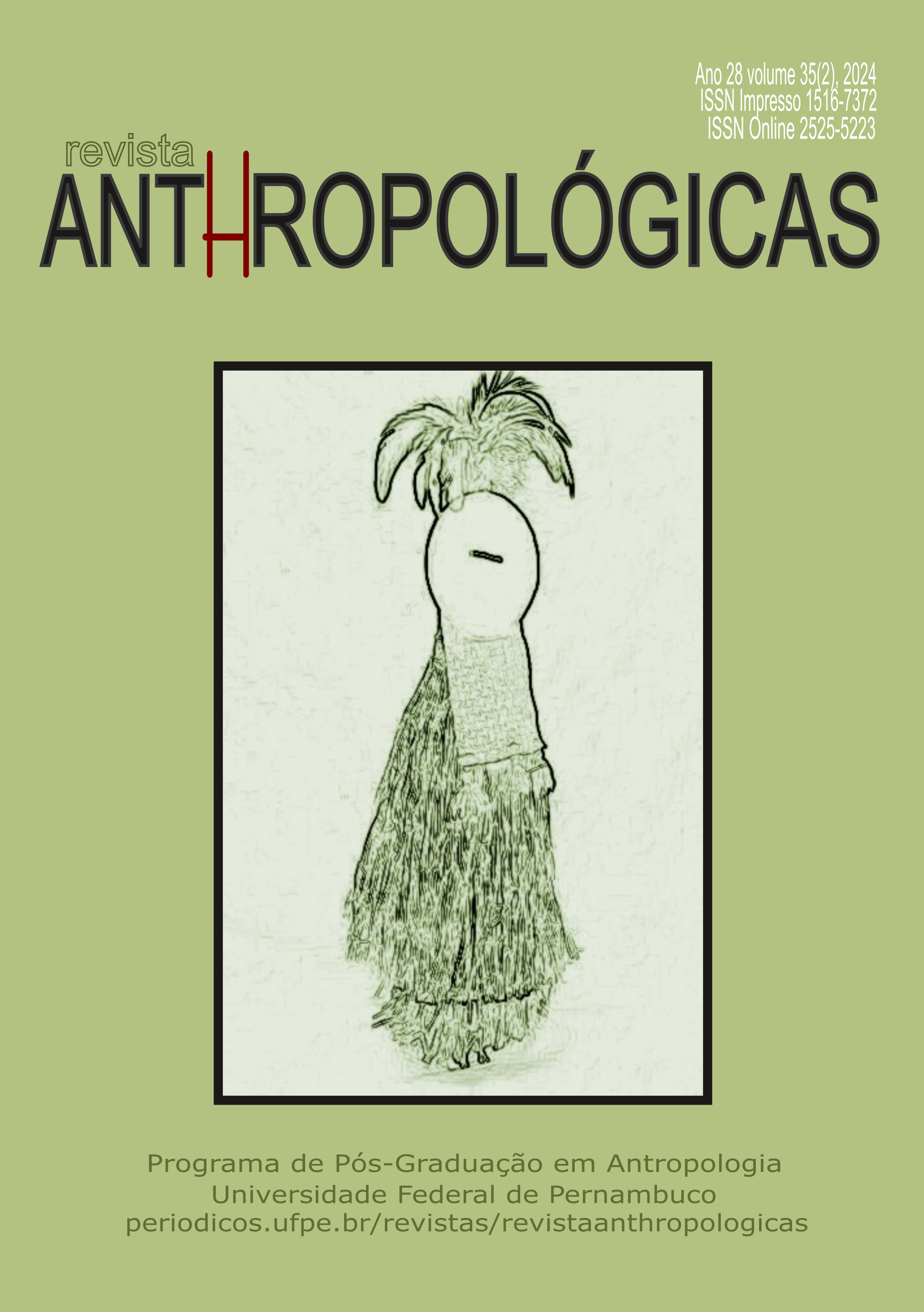Rumo a um novo regime de conhecimento no Antropoceno - A contribuição da antropologia
DOI:
https://doi.org/10.51359/2525-5223.2024.265858Schlagworte:
Antropoceno, Interdisciplinaridade, Antropologia, SuperaquecimentoAbstract
O mundo está sobreaquecido, a civilização global entrou num beco sem saída e negocia um duplo vínculo desconfortável entre os imperativos do crescimento e a necessidade urgente de encontrar soluções sustentáveis. Hoje existe um amplo consenso sobre a necessidade urgente de levar a sério estes desafios na investigação, na mobilização política e na elaboração de políticas. A questão é que tipo de conhecimento é necessário para tomar as medidas apropriadas. A resposta curta é: vários tipos de conhecimento. Para uma resposta mais elaborada, é necessária uma pergunta adicional: que conhecimento? Tomando o conceito e a metáfora do superaquecimento para explicar a estagnação contemporânea, esta contribuição mostra a importância da interdisciplinaridade e questiona até que ponto o conhecimento gerado no campo da antropologia pode contribuir para o tipo de esclarecimento necessário. Devemos aprender com os erros e acertos do passado, buscar o conhecimento necessário nas sociedades de pequena escala que ainda existem, ou insiste que a modernidade tem de resolver as suas contradições pelos seus próprios meios, seja através de algum tipo de governo mundial ou através de soluções tecnológicas?
Literaturhinweise
BARBER, B. (1995). Jihad versus McWorld: How Globalism and Tribalism are Reshaping the World. Ballantine.
BAUMAN, Z. (2000). Liquid Modernity. Polity. Beck, U. (2009). World at Risk. Polity.
BAER, H. (2020). Airplanes, the Environment, and the Human Condition. Routledge.
BAER, H. A. & SINGER, M. (2018) The Anthropology of Climate Change: An Integrated Critical Perspective (2nd edition). Earthscan at Routledge.
CASTELLS, M. (1996). The Rise of the Network Society. Blackwell.
CRATE, S. A. y Nuttall, M. (Eds.) (2009). Anthropology and Climate Change: From Encounters to Actions. Left Coast Press
ENGELKE, P. & MCNEILL, J. (2016). The Great Acceleration. Harvard University Press.=
ESCOBAR, A. (2008). Territories of Difference: Place, Movement, Life, Redes. Duke University Press.
HANN, C. y Hart, K. (2011). Economic Anthropology: History, ethnography, critique. Polity.
HENDRY, J. (2014). Science and Sustainability: Learning from Indigenous Wisdom. Palgrave Macmillan.
HESSEN, D. & ERIKSEN, T. H. (2012). På stedet løp: Om konkurranse i natur og kultur (‘The treadmill paradox: On competition in nature and culture’). Aschehoug.
HOFFMAN, S; ERIKSEN, T. H. & MENDES, P. (Eds.) (2020) Cooling Down. Berghahn. Hornborg, A. (2019) Nature, Society and Justice in the Anthropocene: Unravelling the Money–Energy–Technology Complex. Cambridge University Press.
ERIKSEN, T. H. (2014). Globalization: The Key Concepts (2a ed.). Bloomsbury.
ERIKSEN, T. H. (2016). Overheating: An Anthropology of Accelerated Change. Pluto
ERIKSEN, T. H. (Ed.) (2018). An Overheated World. Routledge.
ERIKSEN, T. H. y Hessen, D. (1999). Egoisme (‘Selfishness’). Aschehoug.
ERIKSEN, T. H. y Schober, E. (Eds.) (2016). Identities Destabilised: Living in an Overheated World. Pluto.
LÉVI-STRAUSS, C. (1962). La Pensée sauvage. Plon.
LÉVI-STRAUSS C. (1983). Le Regard éloigné. Plon.
MALTHUS, T. (1798). An Essay on the Principle of Population. J. Johnson.
MISHRA, P. (2017). The Age of Anger: A History of the Present. Straus and Giroux.
PIKETTY, T. (2014). Capital in the Twenty-First Century. Belknap Press. Ritzer, G. (2004). The Globalization of Nothing. Sage
ROSA, H. (2016). Resonanz: Eine Soziologie der Weltbeziehung. Suhrkamp.
SASSEN, S. (2014). Expulsions. Brutality and Complexity in the Global Economy. Belknap Press. Scranton, R. (2015). Learning to Die in the Anthropocene: Reflections on the End of a Civilization. City Light Books.
SHORE, C. y Trnka, S. (Eds.) (2013). Up Close and Personal: On Peripheral Perspectives and the Production of Anthropological Knowledge. Berghahn.
SNOW, C. P. (2019 [1959]) The Two Cultures. Cambridge University Press.
SÖRLIN, S. (2017) Antropocen. En essä om människans tidsalder. Weylers.
STEFFEN, W., Crutzen, P. y McNeill, J. (2007) The Anthropocene: Are Human Beings Now Overwhelming the Forces of Nature? AMBIO, 36(8), 614–21.
STENSRUD, A. B. y Eriksen, T. H. (Eds.) (2019) Climate, Capitalism and Communities. Pluto. Strathern, M. (1992). After Nature. English Kinship in the Late Twentieth Century. Cambridge University Press.
TAINTER, J. A. (1988). The collapse of complex societies. Cambridge University Press.
TAINTER, J. A. (2008). Collapse and Sustainability: Rome, the Maya, and the Modern World. Archeological Papers of the American Anthropological Association, 24.
VETLESEN, A. J. (2020) Cosmologies of the Anthropocene. Routledge.
WALLERSTEIN, I, et al. (1996) Open the Social Sciences. Report of the Gulbenkian Commission on the Restructuring of the Social Sciences. Stanford University Press.
Downloads
Veröffentlicht
Ausgabe
Rubrik
Lizenz
Copyright (c) 2025 Revista Anthropologicas

Dieses Werk steht unter der Lizenz Creative Commons Namensnennung - Nicht-kommerziell - Keine Bearbeitungen 4.0 International.
Direitos Autorais para textos publicados na Revista ANTHROPOLÓGICAS são do autor, com direitos de primeira publicação para a revista.
Authors retain the copyright and full publishing rights without restrictions.


